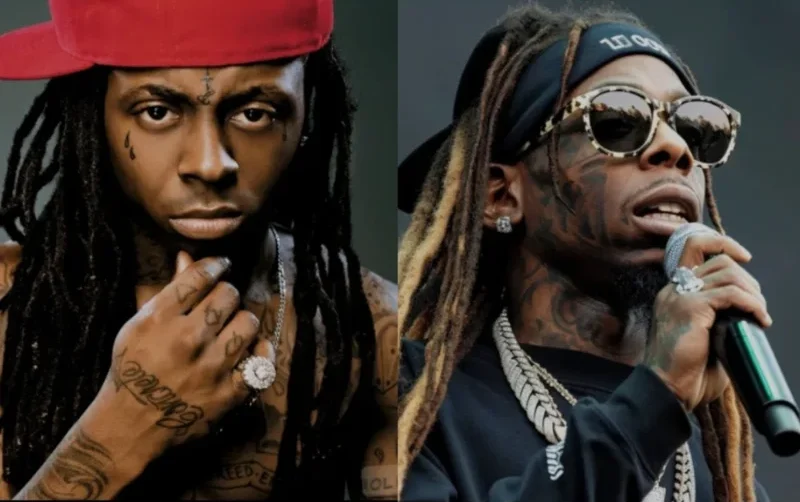The Significance of New Orleans in Hip-Hop Culture
New Orleans holds a vital place in the evolution of hip-hop and music at large. Known for its rich cultural tapestry, the city has been a breeding ground for various musical genres, including jazz, blues, and rap. The historical context of New Orleans as a cultural melting pot shaped its unique sound and has significantly influenced many artists, including the renowned rapper Lil Wayne. His roots in New Orleans are intricately tied to the city’s vibrant musical heritage, which reflects in his lyrics and style.
From the energetic rhythms of Mardi Gras to the rich storytelling traditions found in the music of the region, New Orleans has a rhythm and vitality that resonates deeply with hip-hop. This connection is seen in the way local artists draw inspiration from their surroundings, with many including elements of street culture, celebrations, and community. Lil Wayne, in particular, embodies this phenomenon as his upbringing in the city informs his artistic voice and identity, making him synonymous with New Orleans hip-hop.
Moreover, the pride in representing New Orleans is palpable among local artists, fueling a sense of community and commitment to showcasing their unique experiences. The stage performances in New Orleans are imbued with an extraordinary energy that stems from this pride, allowing artists to connect authentically with their roots. The city’s influence is not just limited to the artists who emerge from it; it extends to the broader hip-hop culture, invoking a sense of authenticity and emotional weight in the music created. New Orleans continues to inspire new generations, fostering a legacy that further enriches the fabric of hip-hop across the globe.
Lil Wayne’s Reaction to the Super Bowl Snub
During the recent Lil Weezyana Fest, Lil Wayne took the opportunity to address the disappointment he felt regarding his exclusion from the Super Bowl halftime show. His emotional response resonated with many fans present, as he expressed feelings of frustration and sadness over what he perceived as a significant oversight by the NFL. Wayne’s passion for his craft was palpable as he addressed the crowd, articulating how the decision impacted him personally and professionally.
In his heartfelt speech, he noted, “It feels like they just ripped away something that should have been mine.” This powerful statement encapsulated the depth of his feelings, as he reflected on the years of hard work and dedication that he believes merit a place in such a prestigious event. Lil Wayne’s candidness allowed listeners to grasp his connection to the Super Bowl, a platform that many artists, including him, aspire to reach. Throughout his performance, the audience responded with unwavering support, showing their solidarity with the rapper as he navigated his emotions in real-time.
The reaction from the crowd further highlighted the bond between Lil Wayne and his fans, who have stood by him throughout his career. They cheered and rallied around him, amplifying his message and signifying their appreciation for his contributions to hip-hop. This support undoubtedly reinforced Wayne’s status as an influential figure in the industry, despite the snub. Clearly, the emotional weight of his words and the community’s response underscored the significance of artistry in the culture, reminding all present of the passion that drives both the artist and his audience.
Kendrick Lamar’s Selection and its Implications
The recent announcement of Kendrick Lamar’s selection to perform at the Super Bowl halftime show has sent ripples across the music industry, particularly in the realm of hip-hop. As an artist known for his profound lyrical content and innovative musical style, Lamar’s presence on such a prestigious platform signifies a notable shift in the mainstream recognition of hip-hop artists. Traditionally, the Super Bowl halftime show has showcased various genres, but hip-hop acts, while gaining momentum in recent years, have struggled to attain consistent representation at such prominent events. Kendrick’s inclusion serves not only as validation of his artistry but also as a beacon for other artists yearning for a similar mainstream acknowledgment.
This decision holds weight for artists like Lil Wayne, who hails from New Orleans, a city that has historically produced significant talent but has been overlooked in monumental settings. Lil Wayne’s legacy, characterized by his groundbreaking contributions to hip-hop, faces questions of representation and competitiveness in light of Lamar’s selection. The juxtaposition of their careers presents a microcosm of the broader narrative within the music industry. While both artists have their unique styles, Kendrick’s performance at the Super Bowl may establish a new standard for what constitutes ‘mainstream success’ in hip-hop, thereby potentially influencing the trajectory of not only Lil Wayne but also countless other New Orleans artists.
Furthermore, Kendrick Lamar’s selection can be viewed as an impetus for change, encouraging other music festivals and major events to prioritize diversity in their lineups. Such inclusivity can inspire a new generation of artists, fostering a creative environment where various genres and voices are celebrated. The implications of this moment are profound, as they may pave the way for greater recognition and respect for hip-hop culture within mainstream spheres, enhancing the overall landscape for artists across the country.
The Future of Lil Wayne and New Orleans Artists
Lil Wayne’s recent comments regarding his Super Bowl halftime snub highlight not only his personal reflections but also the broader narrative of New Orleans’ artistic landscape. Moving forward, Lil Wayne’s influence in the music scene remains significant, particularly as he navigates opportunities that arise from this public acknowledgment of his contributions. His stature as a hip-hop icon positions him uniquely to advocate for both his work and that of emerging artists from New Orleans, a city rich in musical heritage.
For local talent, Lil Wayne’s comments may catalyze a renewed focus on highlighting New Orleans in mainstream culture. The implications of such advocacy could foster opportunities that extend well beyond Wayne himself, creating pathways for other artists to gain exposure and recognition. Events like the Lil Weezyana Fest serve as critical platforms for local musicians, showcasing their talents to a broader audience and elevating their status within the competitive music industry. By providing these opportunities, Lil Wayne not only amplifies his own legacy but also supports the next generation of hip-hop artists.
The cultural resurgence of New Orleans hip-hop is palpable, with increasing mention of local artists making waves on both national and international levels. This moment in time is crucial for bolstering homegrown talent, encouraging collaborations, and investing in community-driven initiatives that celebrate the rich musical tapestry of the region. As Lil Wayne continues to navigate his career, his role as a mentor and advocate will be instrumental in shaping the future of New Orleans music. Enhanced visibility and industry support can benefit not only Wayne but also the myriad of artists striving to follow in his footsteps. Ultimately, embracing local talent has the potential to redefine the narrative of hip-hop originating from New Orleans, solidifying its place as a cornerstone of American music culture.




